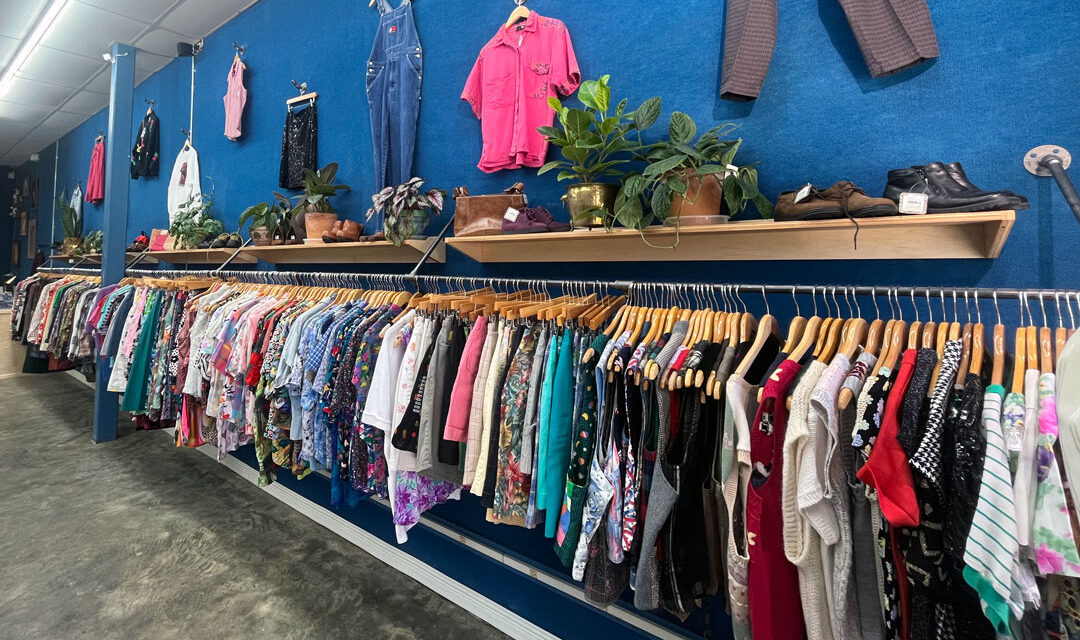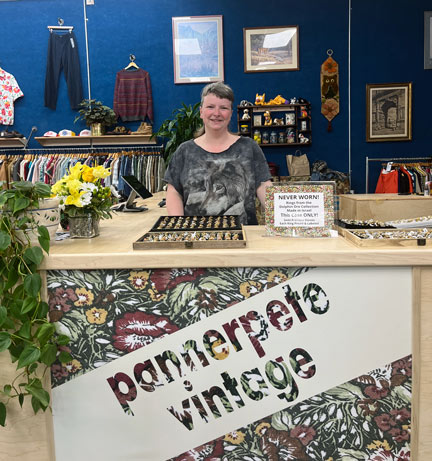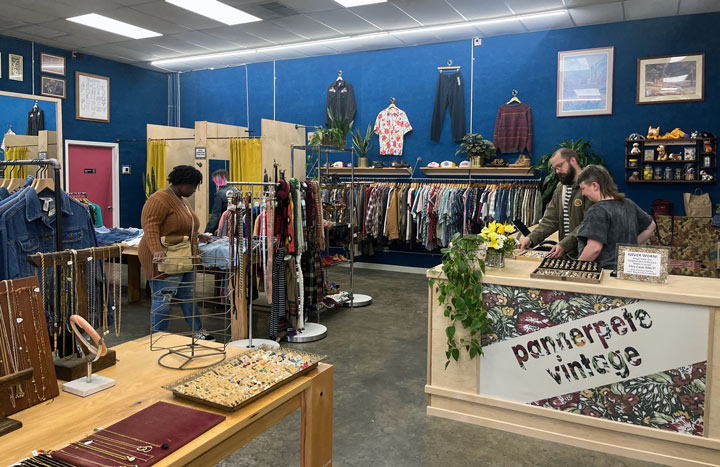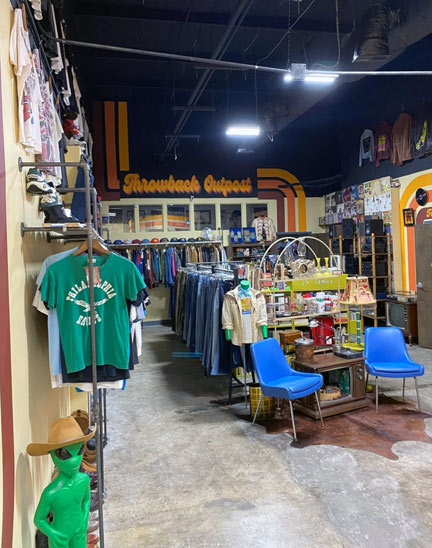Pannerpete Vintage has a store full of unique, pre-owned clothes in a variety of styles and sizes. (Photo by Margaret Walker)
Columbia welcomed two vintage clothing stores in 2023, Pannerpete Vintage and Throwback Outpost.
Before, there were none.
The city wasn’t lacking second-hand shopping opportunities. But there hadn’t been a vintage clothing store since Hip Wa Zee in Five Points closed in 2019.
A vintage store sells curated items that are at least 20 years old. Pannerpete’s and Throwback’s owners sift through donations at thrift stores or trade with one another to compile their inventory.
Second-hand shopping is steadily growing in popularity, and these back-to-back openings reflect that.
“Secondhand shopping is expected to double by the year 2026,” USC retail professor Donna Watts said of trends documented by online consignment store ThredUp and the analytics organization Global Data.
Yet this trend is growing alongside another, contradictory trend: fast fashion, inexpensive clothes made quickly to keep up with rapidly changing trends.
Fast fashion is secondhand sellers’ biggest nemesis and “the bane of (their) existence,” said Pannerpete owner Katie Roberts.
The growing popularity of secondhand shopping has four main contributors, according to one of the Throwback owners, Mason Doane.
It’s more sustainable, of better quality, more affordable and one-of-a-kind.
“Clothing consumption has increased 400% since the 1980s,” Watts said. “Fast fashion is certainly a big part of the problem.”
The cheaply and mostly poorly made fast-fashion clothes aren’t wearable for long and end up getting trashed.
“Eighty-five percent of our old clothes end up in landfills,” Watts said. “In North America, that’s about 25 billion pounds of old clothing per year going to landfills.”
Clothes are being donated in abundance. The backroom of donation sites and thrift stores are always piled high, according to Katie Roberts, owner of Pannerpete.
“You have no idea,” Roberts said. “Let’s just say it would be impossible for me to go around to every thrift store, even in the Columbia area, every week.”
Roberts finds almost all of her inventory in South Carolina, with some denim coming out of Atlanta.
She said her clientele is constantly widening and diversifying. What was once mainly college students now includes people of all ages and with all styles.
Both Pannerpete and Throwback began as vendors at local markets, Soda City and NoMa Warehouse, but grew enough to open a permanent store.
“Ever since moving back to Columbia, I’ve been trying to figure out the vintage and thrift scene here,” said Grant Wilber, a frequent vintage shopper. “So when Pannerpete opened, I was super ecstatic.”
The items that secondhand stores don’t sell often are sent to landfills, according to a report from Boston University.
Fashion is one of the world’s top polluters for many reasons: the fuel used to transport the discarded clothes, the fumes from landfill incineration sites and the chemicals from fabrics and dyes.
There are many ethical reasons surrounding fast fashion that motivate vintage sellers, too.
The fast fashion industry employs 75 million factory workers, of whom 2% make a living wage, yet work an average of 16 hours a day, every day of the week, according to a report from The George Washington University Law School.
“The recent surge of thrift stores and the renewed interest in vintage clothing has certainly helped promote sustainability in the fashion world,” said USC’s Watts. “It seems that consumers are definitely getting the message to be more environmentally responsible when it comes to apparel shopping.”
The owner of Pannerpete Vintage, Katie Roberts, is a USC alumnus and an Upstate South Carolina native. (Photo by Margaret Walker)
Pannerpete is located on Harden Street in Five Points. (Photo by Margaret Walker)
One of Throwback Outpost’s co-owners, Mason Doane, stands in front of the new storefront in Forest Acres on North Beltline Boulevard. (Instagram photo curtesy of Throwback Outpost)
The inside of Throwback Outpost is ’70s inspired and stocked with clothes, home decor, vinyls and art. (Photo curtesy of Mason Doane)






